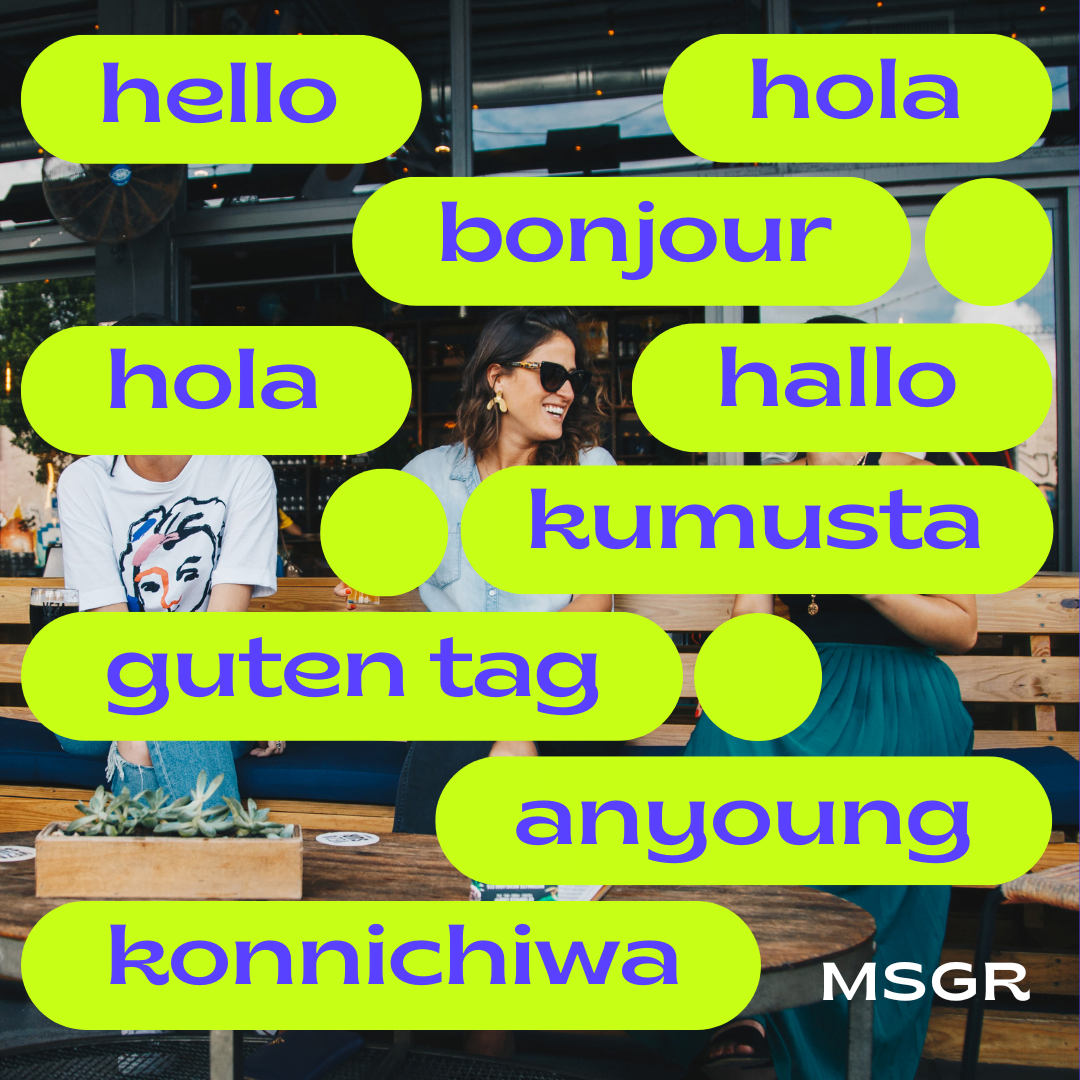Whether you’re a seasoned traveler or embarking on your first global adventure, navigating foreign languages can be both daunting and exciting. In our article, “World Travelers Language Hacks: Basic Phrases and Tips”, we provide you with a collection of essential phrases and practical communication tips to help you confidently navigate through different languages and cultures. From greetings and basic expressions to ordering food and asking for directions, these language hacks will equip you with the tools you need to connect with locals and make the most out of your travel experiences.
Table of Contents
ToggleWorld Travelers Language Hacks: Basic Phrases and Tips
Traveling to different countries is an exciting adventure, but it can often be frustrating when you don’t speak the local language. Luckily, learning a few basic phrases can go a long way in making your trip more enjoyable and enriching. In this article, we will explore the importance of learning these phrases, the benefits of knowing the local language, how to prepare for language learning, and provide useful phrases for common situations. Additionally, we will delve into navigating transportation, ordering food and drinks, asking for help and directions, emergency phrases, understanding cultural etiquette, and utilizing language learning apps and tools. So let’s embark on this linguistic journey together – your passport to effective communication awaits!
Importance of Learning Basic Phrases
Learning basic phrases is an essential skill for any world traveler. It shows respect for the local culture and demonstrates your willingness to engage with the people you encounter. Even if you only know a few words or phrases, they can create a positive impact and break down barriers between you and the locals. Simple greetings like “hello” and “thank you” can transform a transaction into a warm exchange. By making an effort to learn the basics, you can make lasting connections, receive insider tips, and even find yourself being immersed in local customs and traditions.
Benefits of Knowing the Local Language
Knowing the local language opens up a world of benefits. By speaking even a few phrases, you elevate your travel experience to new levels. Firstly, it enables you to navigate your surroundings with ease, whether it’s reading street signs, asking for directions, or understanding transportation options. Secondly, it allows you to interact more confidently with locals, creating opportunities for meaningful conversations and cultural exchange. Furthermore, speaking the local language can help you negotiate prices, order meals to your liking, and generally avoid misunderstandings. This linguistic knowledge grants you a deeper understanding and appreciation of the culture you are immersing yourself in.
Preparation for Language Learning
Before you embark on your language learning journey, it’s essential to lay a solid foundation. Start by familiarizing yourself with the pronunciation of the language. Listening to native speakers or using language learning apps can help you grasp the sounds of the language and improve your accent. Setting attainable goals is also crucial. Begin by learning basic greetings, numbers, and common phrases that will serve you in various situations. Consider enrolling in language classes, downloading language learning apps, or hiring a tutor for more focused learning. Finally, immerse yourself in the culture through books, music, movies, and podcasts. Engaging with the language even before you travel will make your learning experience much more rewarding.
Useful Phrases for Common Situations
Mastering a few basic phrases can make your travel experience significantly smoother. Let’s explore some essential phrases for common situations you are likely to encounter on your journey:
- Greetings: “Hello,” “Goodbye,” and “Thank you” are universal greetings that will always come in handy. Learning how to say these simple phrases in the local language shows respect and is often greatly appreciated.
- Ordering Food and Drinks: Knowing how to ask for a menu, order your favorite dish, or request the bill can make dining experiences enjoyable and stress-free. Additionally, familiarizing yourself with dietary restrictions or allergies in the local language can ensure a smooth ordering process.
- Asking for Help and Directions: Getting lost is a common occurrence when traveling. Being able to ask for directions or assistance in the local language will help you find your way back on track more easily. Whether you need help finding a landmark or a restroom, knowing how to communicate effectively is essential.
- Emergency Phrases: While we hope you never find yourself in an emergency, it’s crucial to be prepared. Learning how to ask for help, report a problem, or seek medical attention in the local language can be a lifesaver. Take the time to memorize emergency phrases and familiarize yourself with important phone numbers in the country you are visiting.
Navigating Transportation
Navigating transportation can be a daunting task, especially in unfamiliar territory. However, learning a few key phrases can make this process much more manageable. Firstly, familiarize yourself with essential transportation terms such as “bus,” “train,” “taxi,” and “airport.” Additionally, learn how to ask for a ticket or inquire about departure and arrival times. This knowledge will empower you to explore the local area with confidence and ease.
Ordering Food and Drinks
Food is an integral part of any travel experience, and ordering your favorite dishes in the local language can enhance your culinary adventures. Start by learning basic food vocabulary, such as different types of meat, vegetables, and grains. Additionally, understanding phrases related to spice levels or dietary restrictions can help you personalize your meals. Don’t forget to learn how to order drinks, whether it’s a refreshing local specialty or a simple glass of water. By making an effort to communicate in the local language, you’ll not only satisfy your taste buds but also leave a positive impression on restaurant staff.
Asking for Help and Direction
Asking for help and directions is an inevitable part of traveling. Whether you’re lost in a maze-like city or looking for a specific attraction, knowing how to ask for assistance is essential. Familiarize yourself with phrases like “excuse me,” “can you help me,” and “where is…?” These simple yet powerful phrases can turn a frustrating situation into a smooth journey. Remember, locals are often more willing to offer help when they see you making an effort to communicate in their language.
Emergency Phrases
Though we hope you never have to use them, memorizing emergency phrases is crucial for every traveler. In case of a medical emergency or threat to personal safety, knowing how to ask for help, say “I need a doctor,” or convey basic medical information can be lifesaving. Additionally, acquainting yourself with phrases like “fire,” “police,” and “emergency” in the local language will ensure you can contact the authorities when necessary. While it’s unsettling to think about emergencies, being prepared can make all the difference in a crisis.
Understanding Cultural Etiquette
Language and culture are intertwined, and understanding the cultural etiquette of a country can greatly enhance your travel experience. Research the customs, traditions, and social norms of the places you are visiting. Learn how to greet locals appropriately, understand table manners, and show respect in religious or sacred sites. By demonstrating an awareness of and adherence to cultural etiquette, you will forge deeper connections with the locals and earn their respect.
Utilizing Language Learning Apps and Tools
In today’s fast-paced digital world, language learning has become more accessible than ever. Take advantage of language learning apps and tools available on your smartphone or tablet. These apps often feature interactive lessons, pronunciation guides, and even real-time conversations with native speakers. Consider downloading apps like Duolingo, Babbel, or Rosetta Stone to supplement your language learning journey. Additionally, carry a pocket-sized phrasebook for quick reference. These tools will boost your confidence and help you communicate effectively wherever your travels take you.
In conclusion, learning basic phrases in the local language is essential for any world traveler. It not only demonstrates respect for the culture you are visiting but also enhances your travel experience by facilitating communication and connection with locals. Start by laying a solid foundation, immerse yourself in the language and culture, and strive to master useful phrases for common situations. Expand your knowledge to include transportation, ordering food and drinks, asking for help and directions, emergency phrases, and understanding cultural etiquette. Finally, make use of language learning apps and tools to further sharpen your language skills. Bon voyage on your linguistic journey, and may you embark on unforgettable adventures enriched by effective communication!





